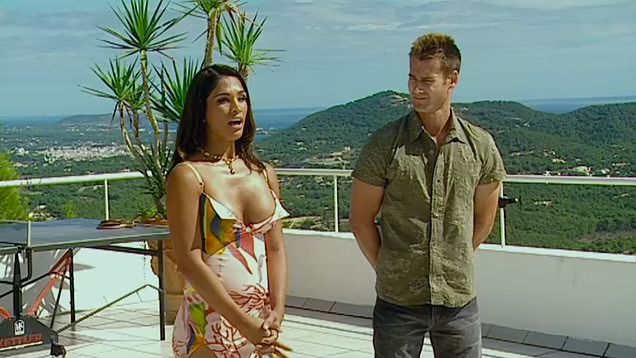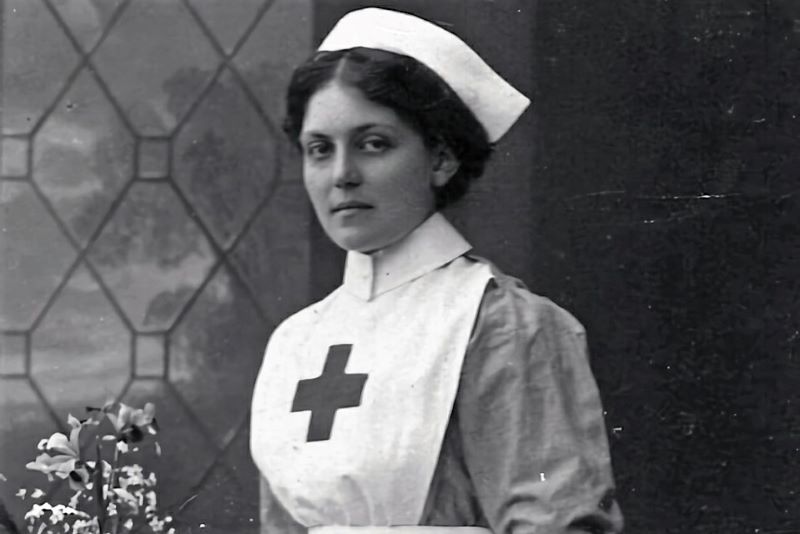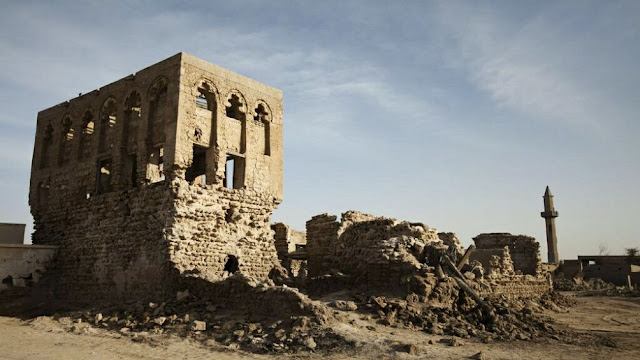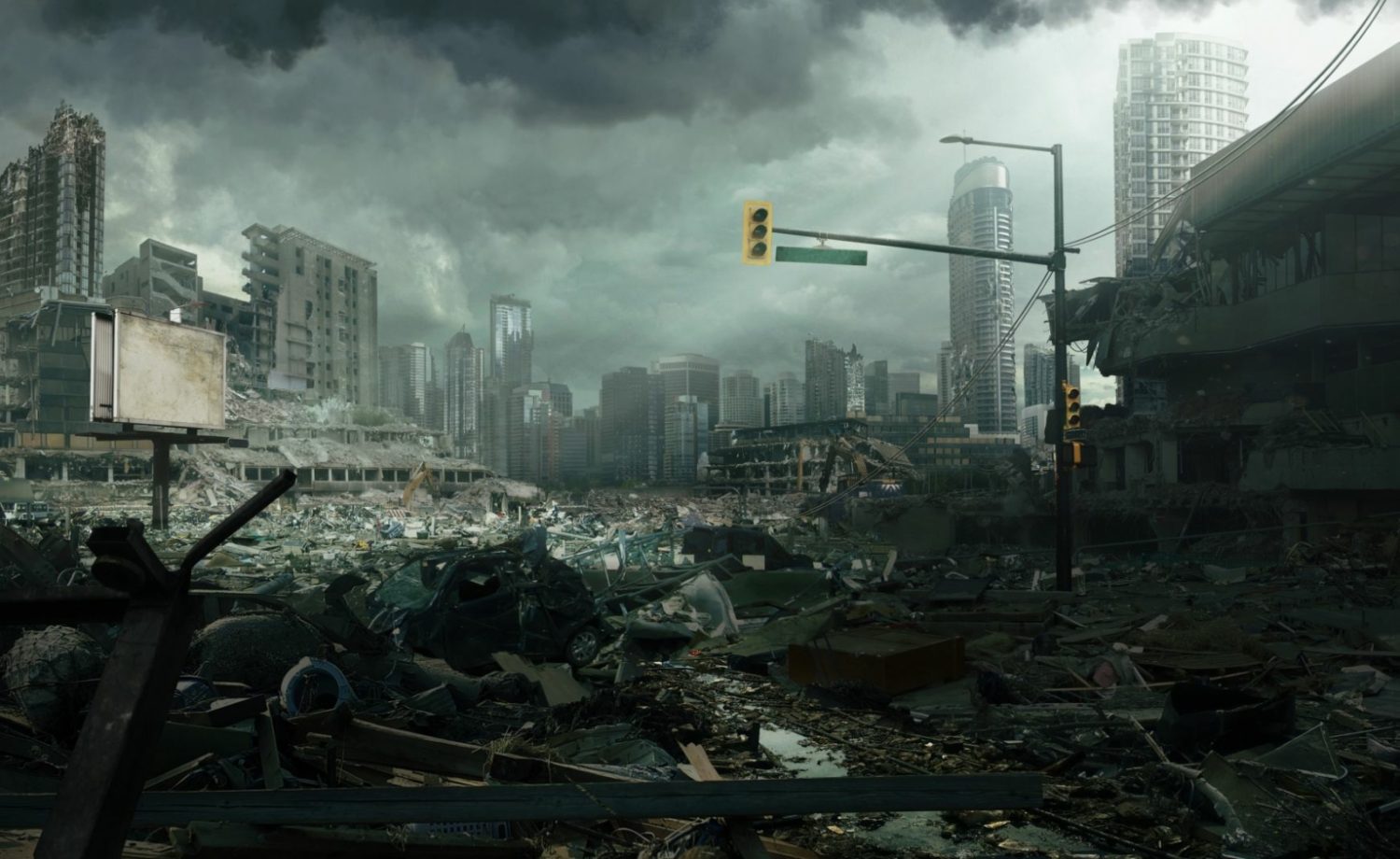A dating show featuring a transgender woman revealing her identity to male contestants is now the subject of intense scrutiny in a new documentary.
“There’s Something About Miriam,” which aired in 2003, became one of television’s most controversial shows due to its provocative content and the ethical questions it sparked.
Filmed in Ibiza, Spain, the show involved six male contestants vying for the affection of Miriam Rivera, a stunning Mexican model.
The controversy stemmed from the show’s major twist—Miriam was transgender, a fact that was not disclosed to the contestants until the show’s finale.

The broadcast of “There’s Something About Miriam” ignited a fierce backlash from both the public and media critics upon its airing.
The controversy centered around the ethical implications of deceit and the inappropriate treatment of transgender identities on the show.
The program sensationalized Miriam’s transgender status as a startling twist, reducing her identity to merely a plot device for entertainment.
This portrayal trivialized the real-life experiences of transgender people and perpetuated negative stereotypes, implying that being transgender was abnormal or a subject for mockery.
For the majority of the series, the male contestants were misled to think they were pursuing a relationship with a cisgender woman.
Throughout the episodes, they engaged in flirting, romantic interactions, and even intimate moments, all under the false impression of Miriam’s gender identity.
The truth was only revealed in the series finale when Miriam announced she was assigned male at birth.
This revelation was designed as the series’ pivotal shocker, eliciting dramatic reactions from the contestants, which were widely criticized as being manipulated for dramatic shock value.

The men’s feelings of anger and betrayal were evident, raising ethical concerns about the show’s production choices.
Several contestants felt humiliated and publicly misled. After the show aired, all six contestants filed lawsuits against the producers, citing emotional distress, defamation, and breach of contract.
They argued that they were tricked into situations that led to embarrassment and ridicule, both on television and in the public sphere.
Eventually, the lawsuit was settled out of court, with the contestants receiving compensation for their grievances.
Another layer of controversy stemmed from the way Miriam herself was portrayed on the show.
Rather than being seen as a fully developed individual, Miriam was cast as an exotic and mysterious figure. The show’s producers objectified her, reducing her to a source of dramatic tension for entertainment.
This portrayal mirrored the broader societal transphobia of the time, where transgender individuals were often stigmatized or sensationalized in the media.
Many viewers found the show’s approach to transgender identity to be exploitative, relying on harmful stereotypes purely for entertainment value.

These issues were later examined in the Channel 4 documentary Miriam: Death of a Reality Star.
The moment Miriam revealed her gender identity has been criticized as one of the most unethical “gotcha” moments in television history, according to MailOnline.
In a heartbreaking scene, Miriam bravely disclosed her truth to the men after selecting contestant Tom Rooke, who was 23 at the time, as her winner.
She told them, “I tried to be honest with all of you as much as I can. Yes, I’m from Mexico, I’m a model and I’m 21. But, Tom, I really love spending time with you. I love men and I love being a woman. But I’m not a woman, I was born as a man.”
To the shock of viewers, the men responded with laughter as Miriam shared her truth.
Friends of the model later claimed that this deeply personal revelation had been “scripted” by the show’s producers, who misjudged the situation and exploited Miriam’s identity for ratings.
Tom reacted on camera, expressing that he felt “very shocked” and “deceived” by Miriam, using male pronouns when referring to her and accusing her of “lying to everybody.”
Crew member Leo McCrea recounted the moment, saying, “It was so incredibly uncomfortable. It felt like all the air had been sucked out of the room. And Tom, he was gasping and looking around at all the deceit.”
Other contestants also felt anger, as participant Toby Green recalled, describing how runner-up Scott Gibson “went berserk.”

A disturbing revelation came from the psychiatrist brought in for the show, who noted that Miriam’s mental health was largely overlooked in the production process.
He explained, “I had been brought in ostensibly to look after the boys. No one had given a thought to how Miriam might feel. The reveal was her coming out to the world, and as far as I was aware, Miriam hadn’t been psych-tested. How would she deal with rejection?”
“Not just from who she picked, but everyone who thought trans people were freaks. They sold her a dream without anybody telling her what could go wrong. I thought she’s vulnerable; she’s had a really, really hard life, like a bird with a broken wing.”
Miriam’s story struck a chord with many viewers because she had opened up about her difficult past, including a distressing first romantic experience where a boy became angry after discovering she was assigned male at birth.
He exposed her to their classmates, and Miriam shared that she began hormone therapy at age 11, started living as a woman from age 16, and endured rejection from her father.

After the show ended, Tom turned down the £10,000 prize money he had won and joined the other contestants in a legal battle.
They accused the producers of conspiracy to commit sexual assault, defamation, breach of contract, and personal injury due to psychological and emotional harm, ultimately reaching an undisclosed settlement.
Following this ordeal, Miriam stepped back from public life, and tragically, she passed away at age 38 in an apparent suicide.
In 2019, she was found dead in her mother’s apartment.
Jo Josun, a production executive from There’s Something About Miriam, also appears in Miriam: Death of a Reality Star and shocked viewers by admitting, “I didn’t feel anything. I’m in the business of making television shows. I didn’t feel anything about the format that I felt was bad or wrong. I didn’t feel that way; I really didn’t. Do I think it went beyond any moral codes of conduct? No.”



